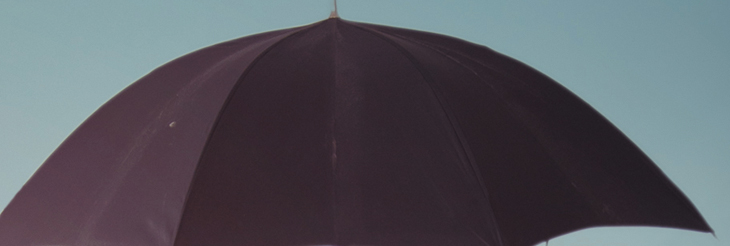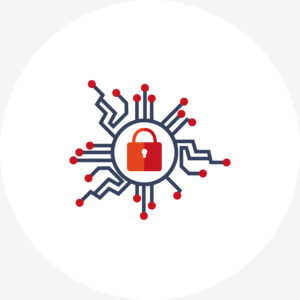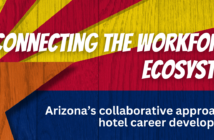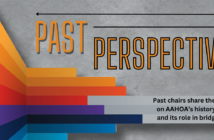by JOHN WELTY
The start of each new decade brings with it a time to reflect on the 10 years prior, as well as the opportunity to contemplate what the future might bring. Looking back at the 2010s, the hotel industry faced several challenges, including devastating hurricanes, terrifying active-shooter situations, and far-reaching cyberattacks. While we may have been hoping for a fresh start to 2020 with fewer headline-making incidents, we instead were walloped with a pandemic, the COVID-19 virus, which has painfully disrupted not only the hotel industry but our global economy and our way of life.
That said, the hotel industry, like many others, is always facing challenges and reinventing itself in the face of adversity. Weathering major events is really nothing too out of the ordinary for our industry. In this article, we’ll look at some of the challenges the industry has faced and how business leaders can prepare for new challenges in the years ahead.
WEATHERING STORMS
As Mother Nature has reminded us time and time again, weather events can do significant damage to businesses in the hospitality space in terms of physical damage to the property, potential injuries to staff and guests, as well as business interruptions leading to lost revenue.
Record-breaking weather events such as hurricanes like Harvey and Sandy, major tornadoes in the Midwest, and wildfires in California demonstrate the negative impact these natural disasters can have on businesses. According to the National Oceanic and Atmospheric Administration, from 2010 to 2019, weather disasters cost the U.S. $802.2 billion. From 1980 to 1989, that number was just $127.7 billion.
While the pace at which these events are growing is alarming, it also begs the question – is there more the industry can do to protect itself? The answer is yes. Fortunately, technology for tracking these events has greatly improved how scientists can predict and gauge how the climate is changing and shifting year to year. With the right natural disaster plans in place and this forecasting information, hotel owners can take action to mitigate their risk exposure.
To combat weather-related risks, hotel management may find it beneficial to create, review, or update emergency manuals and checklists for disasters. Further, owners and operators can consider training staff on the plans, ensuring needed supplies and equipment are on hand, and having proper weather reporting tools and monitoring them. Additionally, they can have a system set in place for alerting staff, informing guests of plans, and when to take action to secure loose objects and board up windows, among other things. These steps won’t guarantee protection from all weather-related events, but by having a plan in place and trained staff that understands how to implement it, hotel managers can be confident that they have put their hotel, its staff, and guests in a much better position to weather the storm.
CYBER CRIME
Another increasing threat to global businesses that we’ve experienced over the past decade and one that doesn’t seem to be subsiding as we move forward is cyber-crime – and the hospitality industry is no exception. In 2018, Marriott International Inc. experienced a cyberattack that cost the company $72 million as of May 2019.
Common network security threats are social engineering schemes, third-party or vendor exposures, ransomware, point-of-sale intrusions, and phishing attempts, among others. A cyberattack could result from something as simple as an employee receiving a phishing email from a hacker and responding by downloading malware that brings down the system.
For hotel owners looking to mitigate their cyber risk, they should first take steps to understand the problem. Further, they need to understand that a cyberattack is not typically a risk covered by their general liability insurance. Additional insurance may be beneficial.
Once they understand their risk, business owners in the hospitality space should assess their risks and take steps to protect their business. These steps could include conducting cyber-risk assessments, training employees on how to identify phishing attacks and how to respond to ransomware attacks, as well as simply making sure virus protection software is up to date. Additionally, owners and operators should evaluate their current cyber insurance policy and consider whether coverage including business interruption and lost wages may be beneficial. When applicable, these polices can potentially allow hotel owners to continue to pay employees’ wages and cover other operational expenses.
ACTIVE SHOOTERS
Active-shooter incidents have sadly reached new heights in recent years, peaking in 2017 with 30 incidents reported by the Federal Bureau of Investigation. The top-five venues targeted in these active-shooter cases continue to be schools, workplaces, stores/malls, entertainment, and government buildings. However, in 2017, the Mandalay Bay Resort and Casino in Las Vegas provided the venue to gunman Steven Paddock to stockpile weapons and serve as a sniper perch for him to kill 58 people and injure hundreds more.
The hospitality industry and many others have taken significant action in response to active-shooter incidents. These changes have been primarily focused on Advanced Law Enforcement Rapid Response Training, where more than 144,000 law enforcement first responders have been trained. Further, hotels have made policy changes regarding their do-not-disturb signs, allowing staff to enter at will if more than 24 hours pass without response from a guest. Some hotels are even considering luggage scanners to look for weapons and more. That said, all hotels should consider implementing staff training programs to help them recognize and report suspicious activity and make sure security systems are properly maintained. Due to the higher-than-average employee turnover in the hospitality industry, quarterly training and updates could be beneficial.
THE COVID-19 VIRUS
The COVID-19 virus is at the forefront of every person’s mind. Hotels have felt the brunt of this pandemic through decreased or non-existent occupancy as state governments have closed non-essential services. It remains unclear how long the crisis will last.
It is also unclear how hotels can rebuild business once the pandemic has calmed. Now, we are starting to read about hotels serving as make-shift hospitals for COVID-19 patient overflow, as temporary residences for health care workers, and as shelters for homeless persons, among other things.
Likely, after the pandemic subsides, reopening and rebuilding business will be a slow process, particularly when compared to how quickly things were shut down. In order to rebuild bookings, guest confidence will need to be restored – a challenge like no other.
There will be many factors involved in helping guests to feel comfortable traveling again and in adjusting back to their normal routines. Room reservations, restaurant and bar seating, and spa visits will take time to get back to normal. The hospitality industry will have to work collectively and look to each other to rebuild guest confidence after the government removes COVID-19 restrictions. Transparency for guests will likely be a key part of the equation – providing information on cleaning and sanitizing, as well as rules on employee, and guest sick policies and more.
Many of us hope for a new decade to bring a fresh start or clean slate, not a pandemic that threatens lives and the global economy. But the hospitality industry is strong and resilient. It has overcome challenges throughout its history and will no doubt find ways to continue to tackle the challenges ahead and come out stronger than ever.
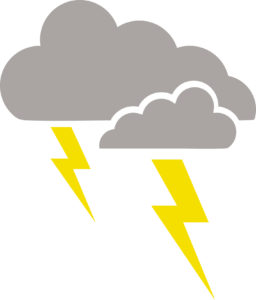
FLAVECTOR/SHUTTERSTOCK.COM
WEATHER READY
Are your staff and leadership prepared for the next major weather event? Ask yourself the following questions and take the necessary actions:
- Are my emergency manuals up to date with checklists for natural disasters?
- Do I have the necessary equipment for each event on property?
- Are my employees trained on what to do in the event of an emergency?
REDLINEVECTOR/SHUTTERSTOCK.COM
CYBER SECURE
Your general property insurance may not cover cyber attacks. Look into your policies and run a cyber-risk assessment to see how your SOP can protect your guests, your staff, and yourself.
ELVIN PHOTO/SHUTTERSTOCK.COM
PHYSICAL SAFETY
Law enforcement first responders have undergone updated training to handle an active-shooter event, but has your staff? Take the following steps to ensure staff and guest safety in the event of an active-shooter situation:
- Implement staff training to help recognize and report suspicious activity
- Make sure security systems are maintained and working
- Make any necessary policy changes to do-not-disturb signs and checking luggage
GHRZUZUDU/SHUTTERSTOCK.COM
A GLOBAL PANDEMIC
The COVID-19 virus has changed the world and guest expectations are following suit. How will you ensure health and sanitation for your guests? Take a look at your sanitization processes, employee sick policies, and even rules on how to handle ill guests to build guest confidence in a post-COVID-19 world.
Policy terms and conditions differ. Nothing contained herein guarantees coverage will be afforded under any given fact scenario or policy language.
 John Welty is the President of SUITELIFE Underwriting Managers, LLC, a series of RSG Underwriting Managers, LLC, an all-lines insurance and risk program for premier hotels, resorts, luxury boutiques, gated communities, and hotel management companies. RSG Underwriting Managers is a subsidiary of Ryan Specialty Group, LLC, which is an international specialty insurance organization that provides innovative solution for brokers, agents, and insurance carriers. In California: RSG Insurance Services, LLC License # 0E50879.
John Welty is the President of SUITELIFE Underwriting Managers, LLC, a series of RSG Underwriting Managers, LLC, an all-lines insurance and risk program for premier hotels, resorts, luxury boutiques, gated communities, and hotel management companies. RSG Underwriting Managers is a subsidiary of Ryan Specialty Group, LLC, which is an international specialty insurance organization that provides innovative solution for brokers, agents, and insurance carriers. In California: RSG Insurance Services, LLC License # 0E50879.

